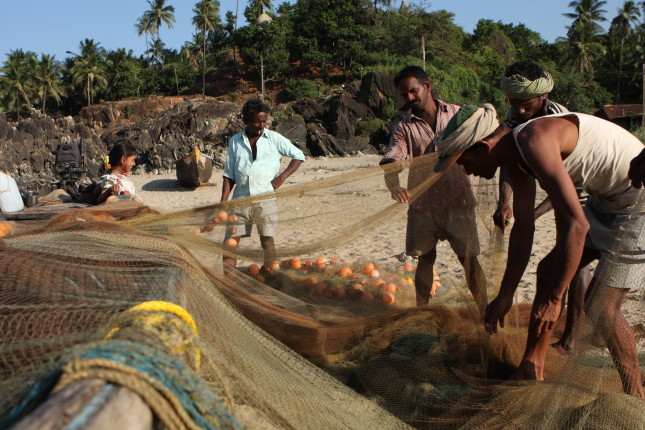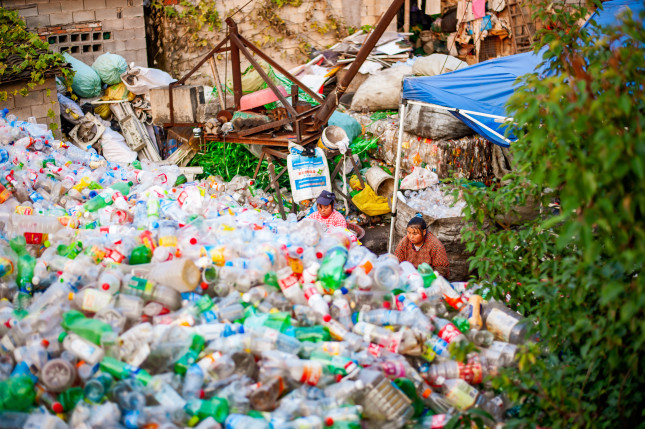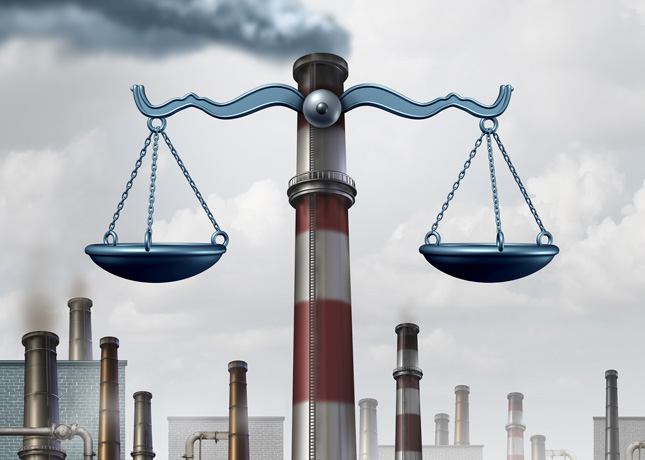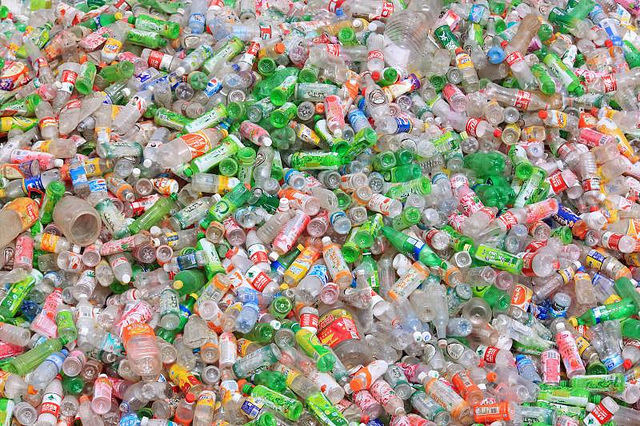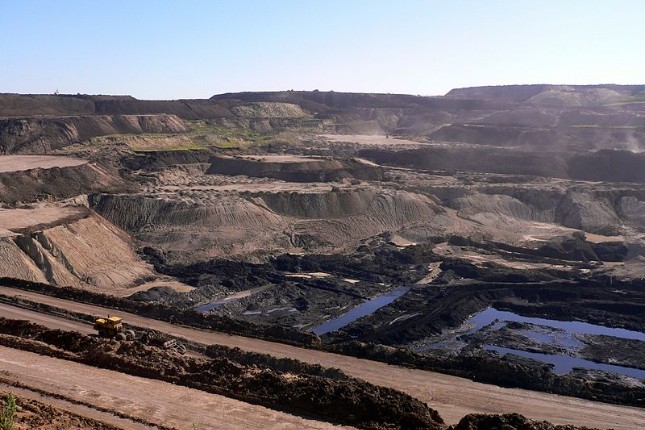-
We Must Address Exotic Wildlife Consumption to Avoid the Next Global Pandemic
›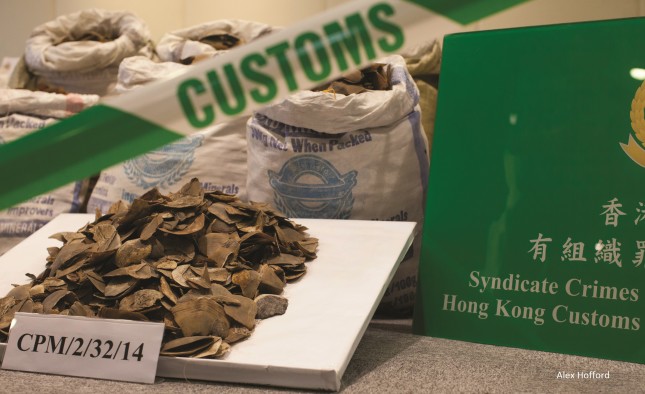
A suspect in the transmission of Covid-19 to humans, pangolins are the most trafficked animal in the world despite the ban on trade by the Convention on International Trade in Endangered Species of Wild Flora and Fauna (CITES). Currently on the Red List of the International Union for Conservation of Nature (IUCN), pangolins are armadillo-looking mammals found in Asia and Africa but are more closely related to cats and dogs. Humans hunt them for their scales used in traditional medicine and the fashion industry and for their meat, which is considered a delicacy. Asian pangolins have become critically endangered, and poachers have turned to trafficking African species, most destined for China and Vietnam. According to TRAFFIC, a leading non-governmental organization working on wildlife trade, twenty tons of pangolins are trafficked each year, putting them on the fast track to extinction.
-
Fisheries Management: A Possible Venue for Navigating Fisheries Conflicts in the Indian Ocean
›
A significant increase in fisheries-related conflicts in the Indian Ocean since 2000 is heightening regional tensions. These conflicts have ranged from purely verbal and diplomatic disputes to armed attacks on fishing vessels by coast guards and navies. These disputes are most often low-intensity, but constitute true “wild card” scenarios in which competing powers’ navies reach the brink of engagement due to the actions of third parties that they neither command nor control.
-
Where Do the Plastic Miners Go When the “Mine” Disappears?
›
Usually after dinner, Mr. Ma would take off his shirt, shut the door, and begin work making plastic pellets from scrap. But tonight, he sits in his darkened yard staring at two SUV-sized plastic processing machines and a bundle of colorful scrap plastic. No lights are on, no machines grind, and no familiar theme song of CCTV-1 plays in the background. Walking through other villages in Wen’an County, more men meander around their yards filled with the same idle processing machines and mini-mountains of scrap plastic. Most have never studied English, but they are fluent in the language of plastics, sprinkling words like ABS, PP, and PVC into their conversations. They are the owners of small plastic scrap recycling workshops that were once booming—but are now silent.
-
China’s Race to Develop Autonomous Vehicles
›
Autonomous vehicles (AVs) are revving up in China. As part of the 2018 CCTV Spring Festival Gala, more than one hundred AVs swerved perfect 8’s on the Hong Kong-Zhuhai-Macao Bridge, showcasing Baidu Apollo’s latest AV technology. China is a latecomer to the automotive industry, but it is taking the wheel in autonomous driving technologies and electric and hydrogen cars, viewing the sector as an unprecedented opportunity to play catchup with the rest of the world (See China Environment Forum webinar on China’s new energy vehicle trends below). Companies in China and around the world want to tap into the lucrative autonomous technology market that could reach $2.3 trillion by 2030.
-
Snow and Ice Melt Patterns Help Predict Water Supply for Major Asian River Basins
›
“For the longest time we thought that water was forever renewable and that it would always be there,” said Gloria Steele, Acting Assistant Administrator for Asia with USAID, at a recent Wilson Center event on water security in High Asia. “We now know that is not the case, and we need to protect it and manage it effectively.”
-
The People vs. Pollution: Empowering NGOs to Combat Pollution with Environmental Law
›
China is four years into its war on pollution, and while the skies over many of its cities are bluer and thousands of polluting industries have been closed, many challenges remain. According to China’s Ministry of Ecology and Environment, 16 percent of China’s soil is polluted, 239 of China’s 338 biggest cities failed to meet air quality standards in 2017, and 32 percent of China’s surface water is not clean enough to swim in. To confront these challenges, Chinese citizens and nongovernmental organizations (NGOs) are taking legal action to halt polluters, push local government to be more accountable, and strengthen enforcement of pollution laws—but most lack the legal experience and expertise needed to be successful. A series of workshops held by the Environmental Law Institute earlier this year sought to close this gap by training NGOs and legal professionals in China on best practices for environmental public interest litigation.
-
China’s Waste Import Ban: Dumpster Fire or Opportunity for Change?
›
In early January of this year, China’s “National Sword” policy banned imports of non-industrial plastic waste. The ban forces exporting countries to find new dumping grounds for their waste, which is estimated to total nearly 111 million metric tons by 2030. China’s decision has exposed deep structural flaws and interdependencies in the global waste management system. Western countries that have long depended on China to take their garbage are now struggling to deal with mounds of plastic trash, while China lacks the low-priced labor needed to effectively sort and process waste.
-
Limited Water for Unlimited Development: Q&A With Shaofeng Jia
›
A quarter of the coal that powers China’s economy is mined in Inner Mongolia, one of the country’s most water-scarce provinces with only slightly under two percent of China’s total water resources. The coal-rich city of Ordos, which produces nearly 70 percent of all the coal in Inner Mongolia, is bookended by expanding deserts—Kubuqi to the north and Maowushu to the south—and may one day run out of water and face a “Day Zero” like Cape Town in South Africa. Both the central and local governments are promoting a number of efforts to create new water supplies in Ordos, such as treating brackish waters and trading water rights. To learn more, the China Energy & Environment Forum recently interviewed Shaofeng Jia, the Deputy Director of Water Resources Research Center at the Chinese Academy of Sciences, who recently completed an extensive study on water-energy confrontations in Inner Mongolia.
Showing posts from category Asia.


